Dire warnings emerge as ‘frothy’ stock market hits record highs – and fears millions of 401(K)s could be affected
Experts are sounding the alarm over ‘frothy’ stock market conditions, predicting a sharp downturn after 2024’s extraordinary gains.
Five leading Wall Street analysts told CNN they foresee a possible bear market in 2025 – a drop of 20 percent or more – after last year’s record highs.
Such a decline could have widespread consequences, affecting millions of U.S. 401(K) and other investments while also destabilizing the broader economy.
A bear market often occurs when stock prices exceed the actual profits of the companies they represent.
Analysts from Moody’s, UBS, JPMorgan and Investco warn that the current market is ‘disconnected from reality’, leaving it dangerously exposed to a sharp correction.
“I’m very concerned because the stock market is pricing in nothing but blue skies and sunshine forever,” Mark Zandi, chief economist at Moody’s Analytics, told CNN.
“The market is very richly valued and bordering on froth,” he argued.
The main US index, the S&P 500, gained 23 percent last year, driven by the boom in artificial intelligence and the gains of the so-called Magnificent Seven technology stocks.
Mark Zandi, chief economist at Moody’s Analytics, said the market is ‘bordering on froth’
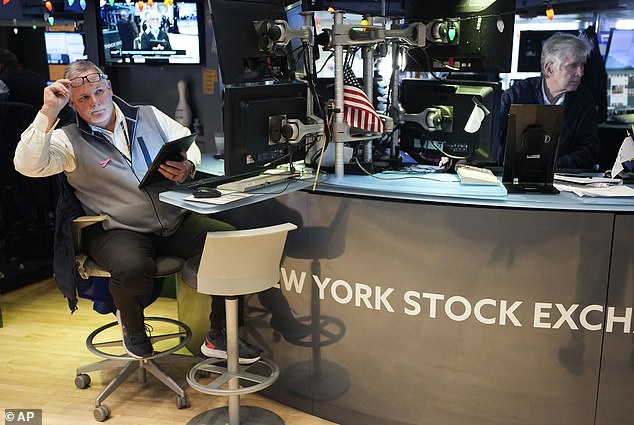
Experts have issued dire warnings of a serious stock market decline in 2025
However, some experts are concerned that these stocks – including Nvidia, Apple, Meta, Microsoft, Tesla, Alphabet and Amazon – now have too much influence on the index’s success.
The S&P 500’s total return, including dividends, has been a whopping 58 percent over the past two years. But without the Magnificent Seven, this would have been 24 percent, according to S&P Dow Jones Indices.
Zandi told CNN he hasn’t been this concerned about the market since the dot-com bubble of the 1990s, and fears a decline of about 20 percent sometime this year.
The Moody’s analyst warned that such a sharp decline could seriously harm the US economy as it would damage consumer confidence and lead to a slump in spending.
This would hit the economy hard, as consumer spending is still the main driver of growth in America.
‘The rise in stock prices has played a crucial role in the success of the economy. It has generated a lot of expenses,” he told the publication.
‘The wealth effects are quite powerful, but if the stock market were to fall and remain low for an extended period of time, it would take the wind out of the sails of high-income earners’ spending.
“And that is a threat to the economy,” he explained.
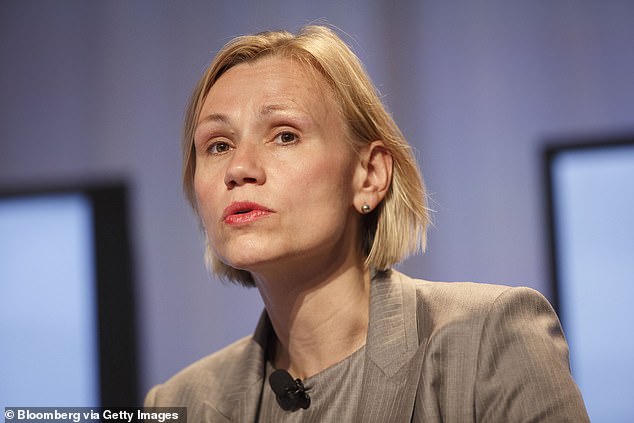
Kristina Hooper, chief global market strategist at Invesco, said there could be a market downturn
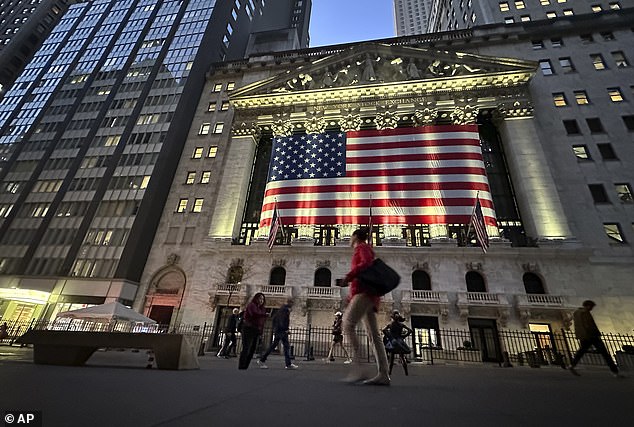
Some Wall Street analysts are concerned that stocks are overvalued
David Kelly, chief investment strategist at JPMorgan Asset Management, agreed. He argued that there is a ‘danger’ that such high valuations make financial markets vulnerable.
“I’m concerned about asset bubbles,” Kelly told CNN.
“Many castles in the air have been built on the foundations of this very stable economy.”
“You might at some point undergo a major correction in the things that are not tied to reality,” he explained.
“There are a lot of very frothy markets that could take a beating.
“Investors need to think carefully about how much risk they are taking,” he warned.
UBS also recently sent a warning to its clients, arguing that many of the conditions for a market bubble are already in place.
“The problem with the bubble thesis is that when a bubble bursts, investors tend to lose 80 percent of their money,” Andrew Garthwaite, global equity strategist at UBS, wrote in a December report.
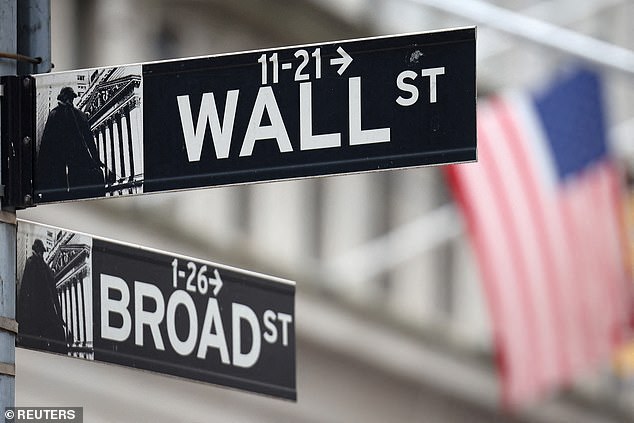
The S&P 500’s total return over the past two years, including dividends, was 58 percent
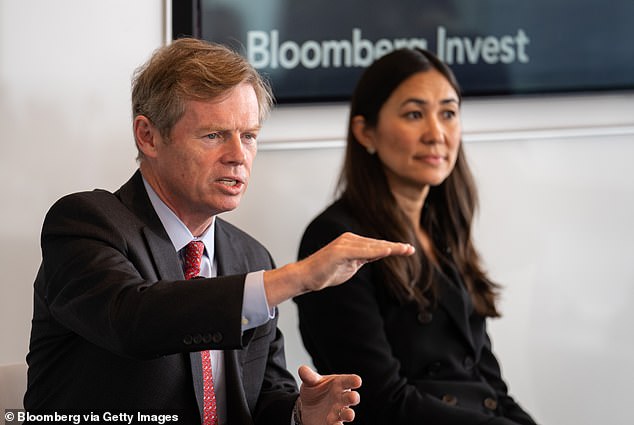
David Kelly, chief strategist at JPMorgan Asset Management, calls high valuations a ‘danger’
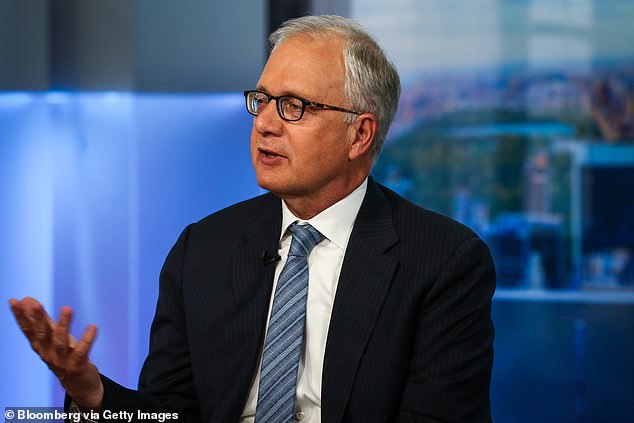
Ed Yardeni, chairman of investment advisory firm Yardeni Research, said a lot depends on the new administration
According to UBS, key indicators of the bubble include falling corporate profits, high retail investor participation and a significant time gap – at least 25 years – since the last major bubble.
A bubble “occurs when there is a narrative of ‘it’s different this time,’ normally associated with technology or market dominance, and we have both,” Garthwaite wrote.
It’s not all bad news. UBS thinks shares could rise another 15 to 20 percent before the bubble is actually reached.
Other experts are concerned that incoming President Donald Trump’s economic agenda – which so far will include tax cuts, tariff increases, deregulation and mass deportations – could cause a breakdown in confidence and therefore trigger a sell-off in the bond market.
He was referring to government bonds, which are essentially IOUs issued by the Treasury Department when they need money.
Ed Yardeni, president of investment consultancy Yardeni Research, told CNN that investors will be closely watching the new administration to see if they can address growing concerns about federal budget deficits and debt.

Andrew Garthwaite, UBS’s global equity strategist, warned: “When a bubble bursts, investors often lose 80 percent of their money.”
“If they don’t get their act together and only agree to tax cuts, the bond market will panic,” he told the publication.
This in turn could spook the stock market, he argued.
Yardeni thinks the market could fall 10 to 15 percent, CNN reported.
However, he doesn’t think there will be a full-blown bear market of 20 percent or more because a recession doesn’t seem imminent.
Kristina Hooper, chief global market strategist at Invesco, also agreed that there could be a market downturn this year, but long-term investors should not view this as a negative.
“It’s not relevant in the grand scheme of things,” Hooper told CNN.
“We could see a pullback, but I think it would be temporary and perhaps healthy, setting the stock market up for the next surge.”
